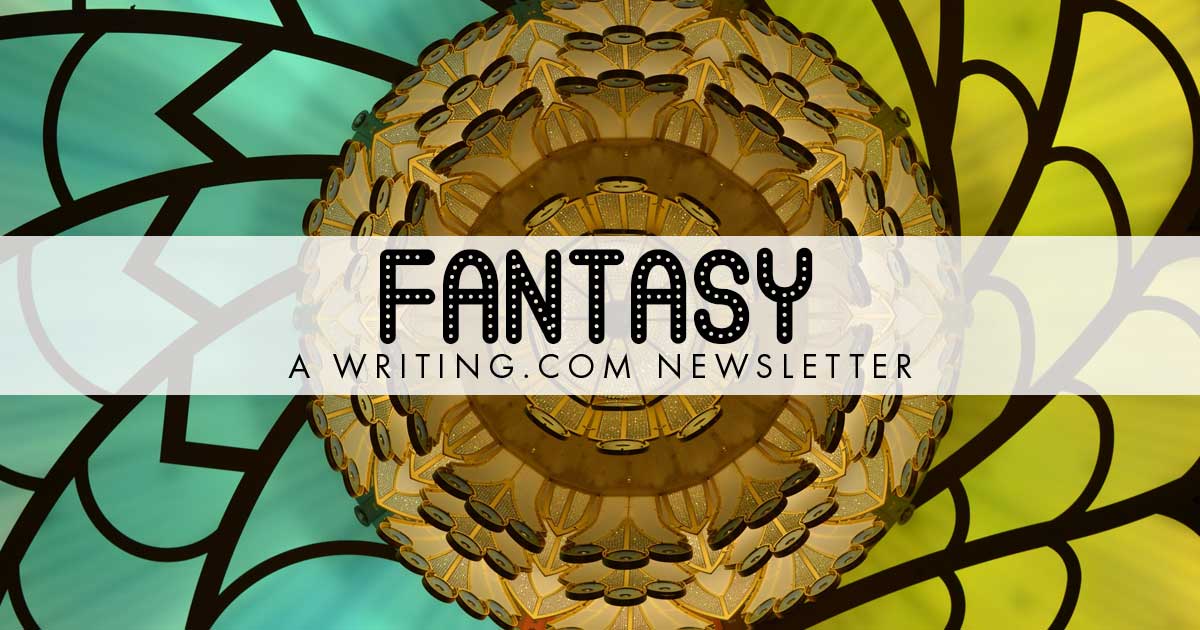This week: The Use of Language Edited by: THANKFUL SONALI Get Well Ken  
More Newsletters By This Editor 
![Table of Contents [#401437]
Table of Contents](https://www.Writing.Com/main/trans.gif) ![Table of Contents [#401437]
Table of Contents Table of Contents](/main/images/action/display/ver/1709303267/item_id/401437.png)
1. About this Newsletter
2. A Word from our Sponsor
3. Letter from the Editor
4. Editor's Picks
5. A Word from Writing.Com
6. Ask & Answer
7. Removal instructions
![About This Newsletter [#401439]
About This Newsletter](https://www.Writing.Com/main/trans.gif) ![About This Newsletter [#401439]
About This Newsletter About This Newsletter](https://www.writing.com/main/images/action/display/ver/1709303676/item_id/401439.png)
| It's interesting how we use language -- and, therefore, what we identify ourselves with. Exploring the turn of phrase and the possible turn of meaning. |
![Letter from the editor [#401442]
Letter from the editor](https://www.Writing.Com/main/trans.gif) ![Letter from the editor [#401442]
Letter from the editor Letter from the editor](https://www.writing.com/main/images/action/display/ver/1709303784/item_id/401442.png)
Dear Reader,
Surprisingly, this newsletter begins with a visit to my Doctor! I was having problems with my eyes, and I said to my Doctor, "I am scared."
"Try saying that in Hindi," she replied.
I tried. The closest I can get to a literal translation is, "Fearfulness is happening to me."
"Precisely. It's happening to you. It's something outside you, and it's happening to you now, and it'll stop happening once the problem is solved or you've reconciled things in your head."
I waited. I thought she was going off on some sort of tangent about the use of language. But she was, actually, still speaking about my health. "You said you're not sleeping because you are scared. Now trying changing that to 'fear is happening to me' or to 'I have some fear now'."
It took me a bit of time, but I did get what she meant. When I said 'I am scared', I was the emotion, the emotion was me, and therefore, I could not separate from it. When I changed it to 'happening' to me, or 'having' it, the fear was different from who I was, and could, therefore, be dealt with more objectively. I was able to relax a bit more at night, and it was somewhat easier to fall asleep.
In English, we identify ourselves with our emotions. We become the emotion. "I am scared"; "I am sad"; "I am happy". The body hears what the mind says, and responds accordingly, to make us BE that, that which we have said we are. Gratitude is one of the most powerful emotions to evoke, which is why evoking it is a ritual in some cultures, especially before a meal. If you ARE thankful, and taking in sustenance, chances are the food will benefit you more than if you were emotionless.
So, evoking an emotion and being that emotion probably has a physical effect on you and your immediate surroundings.
Think of the possibilities!
A fantasy land where you become what you say you are! Apart from the emotions -- happy, sad, angry, excited, grateful ... and hundreds more, you have things like "I'm hungry" "I'm home" "I'm back" ...

Yeah, fun, isn't it?
Go to 'create item' and let's have that fantasy story already!
Thanks for listening,
![Cute Dragon Sig [#2009098]
Dragon Sig created by Kiya gifted by Secret Squirrel! Thank you!](https://www.Writing.Com/main/trans.gif) ![Cute Dragon Sig [#2009098]
Dragon Sig created by Kiya gifted by Secret Squirrel! Thank you! Dragon Sig created by Kiya gifted by Secret Squirrel! Thank you!](https://www.writing.com/main/images/action/display/ver/1493001051/item_id/2009098.gif)
|
![Editor's Picks [#401445]
Editor's Picks](https://www.Writing.Com/main/trans.gif) ![Editor's Picks [#401445]
Editor's Picks Editor's Picks](https://www.writing.com/main/images/action/display/ver/1709303830/item_id/401445.png)
By our authors!
All-time favourites!
| | Anniversary Reviews  [E] [E] #1565040 Help members celebrate another year of membership by sending them Anniversary Reviews. |
| | The WDC Angel Army  [ASR] [ASR] #1188309 Dedicated to promoting positivity, encouragement, and support to the WDC community. |
|
![Word From Writing.Com [#401447]
Word from Writing.Com](https://www.Writing.Com/main/trans.gif) ![Word From Writing.Com [#401447]
Word from Writing.Com Word from Writing.Com](https://www.writing.com/main/images/action/display/ver/1709303874/item_id/401447.png)
Have an opinion on what you've read here today? Then send the Editor feedback! Find an item that you think would be perfect for showcasing here? Submit it for consideration in the newsletter!
https://www.Writing.Com/go/nl_form
![Ask & Answer [#401448]
Ask & Answer](https://www.Writing.Com/main/trans.gif) ![Ask & Answer [#401448]
Ask & Answer Ask & Answer](https://www.writing.com/main/images/action/display/ver/1709303902/item_id/401448.png)
My last Fantasy Newsletter was a while ago -- no feedback to showcase!
So -- question -- how many times today did you hear someone identify themselves with an emotion? |
![Unsubscribe [#401452]
Removal Instructions](https://www.Writing.Com/main/trans.gif) ![Unsubscribe [#401452]
Removal Instructions Removal Instructions](https://www.writing.com/main/images/action/display/ver/1709303960/item_id/401452.png)
To stop receiving this newsletter, click here for your newsletter subscription list. Simply uncheck the box next to any newsletter(s) you wish to cancel and then click to "Submit Changes". You can edit your subscriptions at any time.
|
